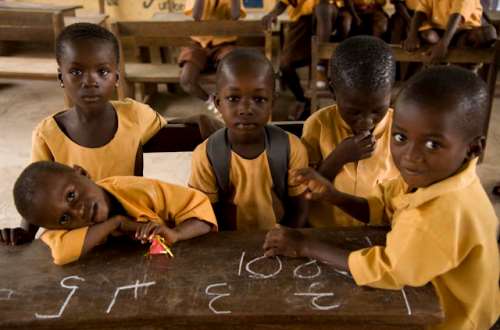Only 17 out of 5400 Schools under trees completed since 2021 – Report
Some Civil Society Organisations and teacher groups have revealed that only 17 out of 5,400 schools under trees have been completed by the Akufo-Addo-led government since 2021.
A report put together by 10 CSOs including STAR-Ghana, CAMFED and ActionAid added that at the current pace, it will take Ghana more than 300 years to eradicate the over 5,400 schools under trees, sheds and dilapidated structures.
“There are over 5,400 schools existing under trees, sheds and dilapidated structures, a situation which negatively affects, teaching, learning, and learning outcomes. The general learning environment is not only a disincentive for teachers to accept postings but also demotivates existing teachers while making school attendance unattractive to students.
“The government in 2021 announced a programme to replace all schools under trees, sheds and dilapidated structures with decent new school buildings by 2025. To date, only 17 have been completed. Given the current pace, it will take Ghana more than 300 years to eradicate the over 5,400 schools under trees, sheds and dilapidated structures, which is unacceptable.”
The report added that between 2015 and 2021, public basic schools grew by 12 per cent with private schools growing by 68 per cent but in the medium term 2018-2021, only an average of 0.8 primary schools were constructed each year per district.
The slow growth of public schools, due to the lack of adequate investment in basic school infrastructure suggests the government is shifting the responsibility of providing free compulsory universal basic education to the private sector, which is beyond the financial reach of the poor.
The CSOs and teacher groups also criticised the government’s one student, one laptop initiative.
“Government’s plan to procure 1.3 million laptops to replace textbooks in Senior High Schools across the country does not represent efficient and prioritised use of public funds in the face of a heavily underfunded basic education sub-sector”.
The CSOs also made a number of recommendations they believe could help revive the country’s educational system if adhered to.
“The government must develop an emergency infrastructure expansion plan for overcrowded urban and peri-urban schools. The Plan must also include a purposive approach to bridging the 25 percent gap between primary and JHS while providing new schools for underserved communities. The government must deploy desks to all the 2.3 million pupils in underserved schools. Partnerships with the Forestry Commission and the private sector should be pursued,” the organisations recommended.





